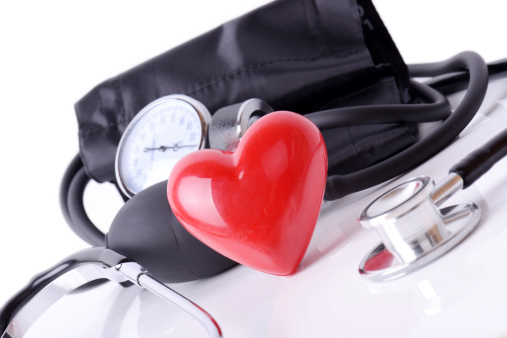
Cardiovascular Risk Factor (II): Arterial hypertension
17 May is World Hypertension Day
Learn how to keep your blood pressure under control.
Blood pressure is the physical pressure of blood against the walls of the blood vessels. This pressure is essential for the blood to flow correctly through the blood vessels to reach all the cells and then return to the heart to be oxygenated again.
- Systolic pressure is the higher value that represents the pressure in the arteries when the heart beats or contracts. It is the pressure exerted by the blood pumped from the heart against the blood vessel walls. This is the top number.
- Diastolic blood pressure is the lower pressure which represents the pressure in the arteries between beats. This is the bottom number.
Normal blood pressure for adults is defined as a systolic pressure below 120 mmHg and a diastolic pressure below 80 mmHg. When the systolic pressure is equal to or greater than 140 mm Hg and/or diastolic pressure is equal to or greater than 90 mm Hg, blood pressure is considered high.
An isolated blood pressure reading, need not necessarily mean that you have hypertension, because there are numerous factors that can raise your blood pressure, such as (nerves, stress, and infections…). However, long-term high blood pressure may cause a plethora of health problems, particularly heart and vascular problems. That it why it is considered one of the most important cardiovascular risk factors more important.
What problems does hypertension cause?
Almost 95 per cent of the cases of hypertension are caused by external risk factors such as overweight and dietary habits, stress, smoking and alcohol. These factors are also associated with cardiovascular risk. There are some hypertensive patients with a hereditary predisposition while others suffer from secondary hypertension, which is caused by underlying conditions such as diabetes, kidney disease, hypothyroidism…etc.
Blood pressure tends to rise with age. Around 60% of people over the age of 65 in the industrialised world are hypertensive. Women are more protected by hormones until they reach menopause, when frequency between men and women evens out.
The higher your blood pressure, the greater the risk of damage to the heart and blood vessels of organs such as the brain and kidneys. Hypertension is the most significant preventable cause of cardiovascular disease and stroke in the world.
If not controlled, high blood pressure can cause heart attack, enlargement of the heart and, in the long run, heart failure. The blood vessels can develop localised swellings (aneurysms), and weak areas that make them more likely to become clogged and rupture. High blood pressure can cause blood to haemorrhage in the brain and cause a stroke. High blood pressure can also lead to kidney failure, blindness and cognitive deterioration.
Here are some guidelines, to help you to keep your blood pressure down
- Watch your weight. Overweight makes the heart work harder and causes fatty plaque to form that interferes with blood circulation.
- Avoid a sedentary lifestyle. Lack of physical activity slows the resting heart rate and increases the likelihood of thrombi and blood clots. All types of physical exercise speed up breathing, improve blood flow and lower blood pressure. Avoid, at all cost, muscle building exercises that involve supporting heavy weights and holding your breath, without aerobic movement.
- Cut down on salt. Too much salt in your food can cause your blood pressure to rise. This is because the salt causes fluid retention and increases the volume of plasma your heart must pump, requiring extra effort.
- Eat right. It is important to eat more fruit and vegetables, which are rich in potassium and fibre and reduce fluid retention. Avoid foods that contain a lot of salt such as salted and canned meat and fish. Up your intake of lean meats like chicken and turkey, and eat less red meat and salted fish, eggs and whole cereals. The Mediterranean diet protects the heart and will help to keep your blood pressure under control.
- Don’t smoke. Nicotine stimulates catecholamine that causes the blood vessels to contract.
- Drink less alcohol. Alcohol abuse increases the risk of haemorrhagic and ischemic stroke.
- Have regular tests to check your blood sugar, cholesterol and triglyceride levels. Excess of fat in the arteries and high blood glycaemia levels can cause metabolic syndrome, which is a set of metabolic risk factors for your heart (hypertension, diabetes, obesity and hypercholesterolemia).
Take your blood pressure regularly. Make sure that you take it under the same conditions and at the same time in a resting position. This will enable you to keep control of your blood pressure and, if you need it, your doctor will prescribe medication to reduce it.
